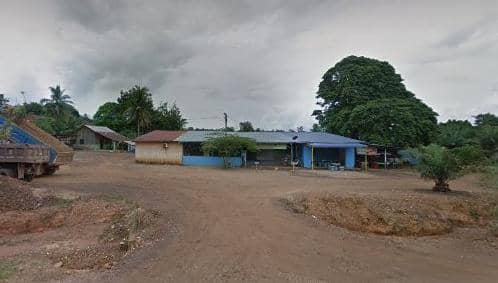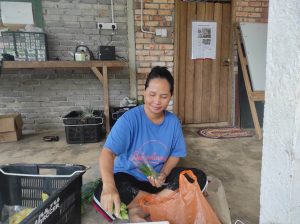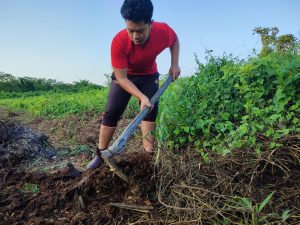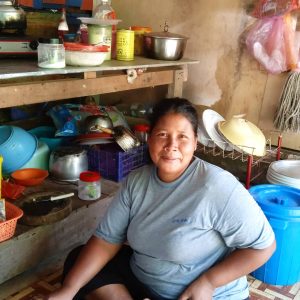Mental health is a universal concern, impacting individuals irrespective of their background or lifestyle. However, perceptions of mental health vary among people, and they encounter distinct challenges in addressing it.
Indigenous communities, with their distinctive cultures and ways of life, offer a unique perspective on mental health. They show us that mental health isn’t a one-size-fits-all deal and there’s a lot to explore, especially within their communities.
The global spotlight on mental health intensified during the COVID-19 pandemic, leading to increased awareness and prevention efforts worldwide.

Yet, despite this global spotlight, in Melai, mental health awareness remains a largely foreign concept, as explained by Amai Maimun, 50, and Kak Salasiah, 40.
We do not [fully] understand mental health issues because there’s a lack of exposure from other people outside our village. – Amai Maimun and Kak Salasiah
The Invisible Challenge
In recent years, our country has seen a worrying uptick in mental health issues among adults, with a whopping 29.2% reporting mental health disorders according to the 2015 National Health and Morbidity Survey (NHMS). The COVID-19 pandemic only made things worse, as helplines lit up with folks seeking help.
What’s even more eye-opening is that data shows rural folks are experiencing more than double the rate of depression cases (3.9%) compared to their city counterparts (1.9%).
Despite these alarming statistics, we’re still in the dark about the mental health situation among the Orang Asli community, and that’s a gap we need to fill with awareness and attention.

Over in Melai, it’s a similar story. Mental health isn’t exactly common knowledge there. Amai Maimun and Kak Salasiah share their opinions on mental health.
Good mental health for us is a person’s ability to be able to think well or be sane in doing daily activities such as gardening and being part of the community. – Amai Maimun and Kak Salasiah
For them, mental health becomes an issue when people exhibit self-destructive or bizarre behaviours.
People with mental health issues usually have other symptoms like self-harming actions such as taking illegal substances. We also sometimes see ‘crazy’ people in town and think they have mental problems. – Amai Maimun and Kak Salasiah
Their perspective shows a very narrow view of mental health because it is largely judged by outward appearance and behaviours. This warrants the need for great mental health awareness and education among the Melai community.
Is Mental Health Curable?
However, the two women have differing opinions when it comes to seeking treatment for mental health issues.

Maimun is pretty sceptical about the effectiveness of modern medicine in dealing with mental health concerns. She firmly believes that once a person has reached a state of ‘insanity,’ severe mental health conditions become incurable.
I don’t think you can cure mental health problems, especially if an individual is insane. – Amai Maimun
Now, Salasiah, on the other hand, has a different perspective. She thinks medications from external sources can play a crucial role in getting someone’s mental health back on track. According to her, modern medicine can offer valuable support and treatment for those grappling with mental health challenges.
I do think it’s possible to cure. Medicines from outside, like modern medicine, can help restore a person’s mental health. – Kak Salasiah
Finding Peace Of Mind
Village life comes with its perks. With nature just a stone’s throw away and the close-knit bonds shared among friends and neighbours, it contributes to their overall positive mental well-being.

I feel less stressed because the atmosphere in the village is peaceful and harmonious and I am also free to do my favourite activities. -Kak Salasiah
They lean on the support of their friends and neighbours, participating in activities that bring them joy, such as fishing, picnicking, and immersing themselves in the beauty of the jungle and the serenity of the river.
I don’t feel very stressed because I live in a village with a calm atmosphere. – Amai Maimun
Amai Maimun and Kak Salasiah’s perspective from Melai offers a valuable glimpse into the intricate landscape of mental health. It underscores that mental health is a deeply personal and culturally shaped concept.

While their knowledge might be limited due to a lack of exposure to information, it underscores the necessity for more comprehensive education and awareness regarding mental health within these communities.
In the end, their stories exemplify the resilience and strength embedded in their tight-knit communities. They navigate life’s challenges with the support of friends, neighbours, and the soothing embrace of nature. In doing so, they remind us of the profound connection between our well-being and our environment.
SOURCES:
- Ministry of Health Malaysia. (2015). National Health and Morbidity Survey 2015. Link
- Ministry of Health Malaysia. (2019). National Health and Morbidity Survey 2019 Technical Report – Volume I. Link


